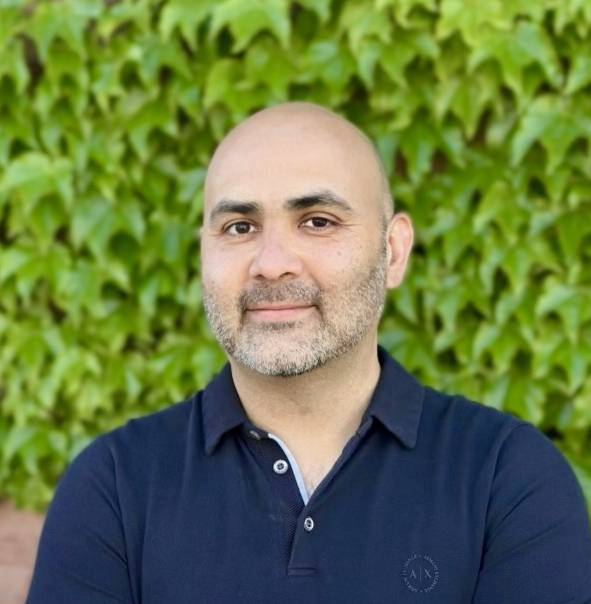Taming Your Inner Demon: What K-Pop Demon Hunters Teach About Shame and Resilience
- Ian Blubaugh, MD

- Oct 16, 2025
- 3 min read
Like nearly everyone else, my attention span has been shot to hell by endless doomscrolling and a barrage of nonstop dopamine drains; so sitting down and watching a whole movie straight through is a rare experience. So I was a bit surprised a few weeks ago when I found myself sitting silently enraptured, watching the whole of K-pop Demon Hunters without a pause, and now still continuing to obsess over the catchy songs and lyricism.
This isn’t exactly a unique take; the movie has now become the most-watched ever on Netflix, breaking records in 33 countries, and will likely lead to a billion dollar empire of merchandising and spin-offs that we’ll never recover from.
But within the glossy, kinetic visuals and infectious songs, there are some very profound themes of resilience and shame that underlie the movie; two things I struggle with every day both for myself, and for my patients.
KPop Demon Hunters follows Huntr/x - Rumi, Mira, and Zoey, a K-pop girl group that doubles as demon hunters. Their public image is glossy, optimistic and heroic, but behind the scenes they carry burdens: secret identities, internal turmoil, and the weight of expectations. Rumi, especially, carries this heavy weight. She’s secretly half-demon, and demonic “patterns” begin to spread across her skin. As the patterns move upwards on her body, it begins to literally constrict her voice, suffocating her from within, and becomes something that she must hide and overcome at all costs.
Shame: Hidden Burdens & Dual Identity
The marks that Rumi carries are parallels to that of the invisible struggles we all carry; illness, trauma, queerness, ‘otherness’. It’s the way that those internalized struggles can silence us, especially at the moments we need to speak most, and to the people that we most need to speak to. It represents how shame can suffocate us, and turns our negative feelings inward, making us feel like our failings are an intrinsic part of us, rather than something we can overcome.
Many of us (physicians 🙋🏽♂️ included) mask and cover for these perceived failings by putting on a false face; overachieving, admitting no weakness, chasing ‘success’ at great personal expense. Like Rumi, we keep believing that by hiding our faults, our burnout, our exhaustion, we can ultimately overcome and succeed. But also like Rumi, we might find that leads us to our voice being muted, and our ‘demons’ increasing.
Ultimately Rumi, Mira and Zoey overcome, and I think that their comeback arc has some potent mental health lessons for us all;
1. Resistance & Awareness: Huntr/x don’t charge blindly. They detect the demonic infiltration weakening the Honmoon.
Takeaway: Acknowledge your symptoms; fatigue, depressed mood, withdrawal, irritability. Naming them is resistance, not denial.
2. Support & Trust: Rumi leans on Mira and Zoey, and while the secrets initially complicate their trust, ultimately she must reveal parts of herself.
Takeaway: Recovery rarely succeeds in isolation. Confiding in allies shrinks shame and anchors you.
3. Small Rehearsals & Micro-Risk: They rehearse together, test spells, and rebuild strength. They work for years to seal the honmoon.
Takeaway: Micro-habits (5-minute walks, short check-ins with friends, meditation) rebuild neural circuits and enhance resilience.
4. Integration Over Erasure: In the climax, Rumi doesn’t erase her demonic patterns, she sings about her shame and self-acceptance, breaking the trance on her bandmates.
Takeaway: Healing often involves integrating our difficult part, not removing them or pretending they never existed.
In KPop Demon Hunters, the climax isn’t about erasing darkness. It’s about singing through it, trusting our allies and ultimately about reclaiming our agency. Rumi’s story resonates because her comeback is messy, roundabout, and deeply human.
At Seven Hills we want to connect with you, and listen to you, to build those patterns and habits that will help you find your own healing. We take the time to get to know you, in a place where you feel safe and heard, and help you find your comeback story. Come join us for a visit and a cup of tea, to discuss your health, anime, or any of those catchy songs.


Gokkers die variatie in het spel belangrijker vinden dan beperkte toegang, vinden hun toevlucht in de online casino's van Zonder Cruks. Ze bieden een vereenvoudigde ervaring met honderden spellen en onbeperkte online casino zonder cruks nederland registratieprocedures. Zorg ervoor dat het gekozen platform veilig aansluit bij je spelvoorkeuren door online reviews zorgvuldig te lezen en gebruik te maken van de klantenservice.